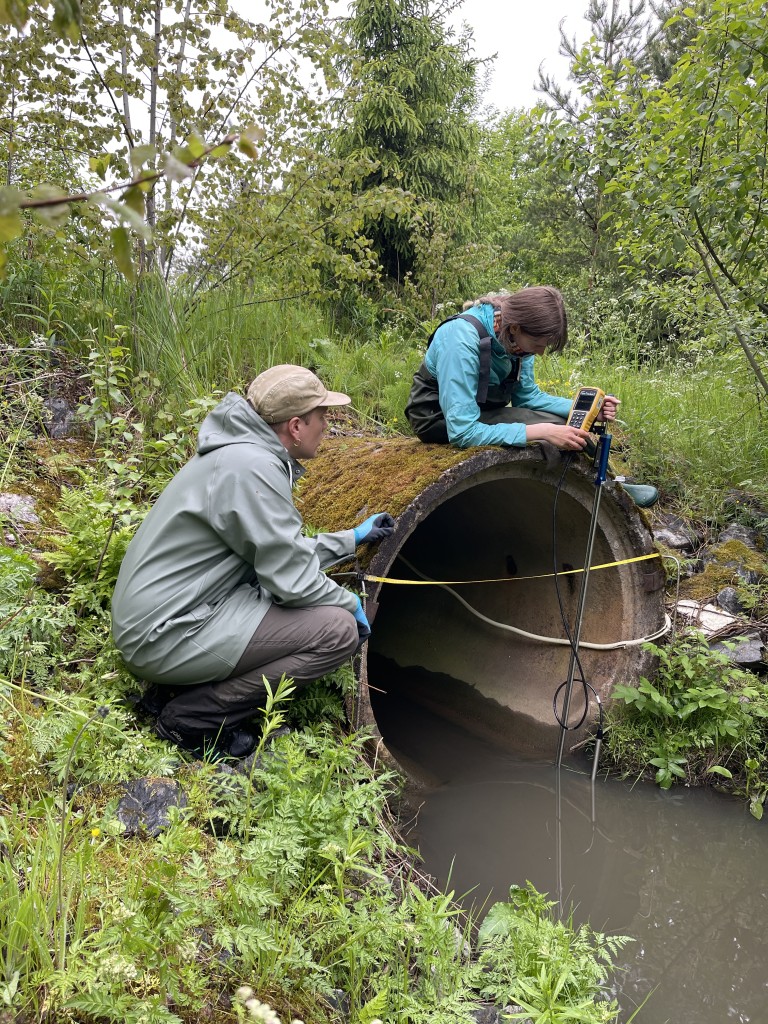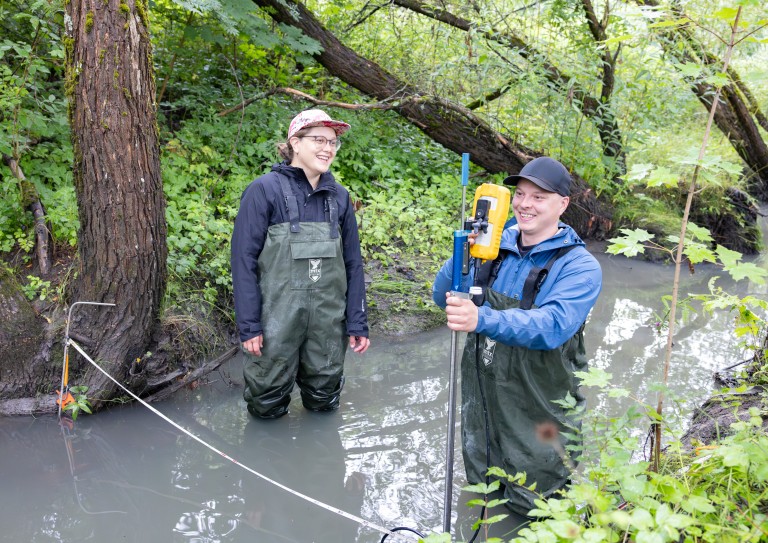Research
Our mission is to develop scientifically based practical solutions to challenges in water protection, climate adaptation and conservation of biodiversity, and to train environmental engineers that are ready to face the challenges of the future.
We carry out applied research and development projects in collaboration with authorities, companies, and research institutes mainly from European countries. To achieve our goals, we draw on multidisciplinary expertise and work on multiple levels, from practical fieldwork to the policy level.
Our core expertise
- Adaptation to climate change
- Environmental monitoring and modeling
- Research, design and implementation of water restoration
- Research and reduction of harmful substances
- Sustainable public procurement
- Sustainable management and regulation of stormwater and wastewater
- Development and implementation of water and environmental education for different target groups
Below you will find links to our ongoing and completed projects.

Our ongoing projects

